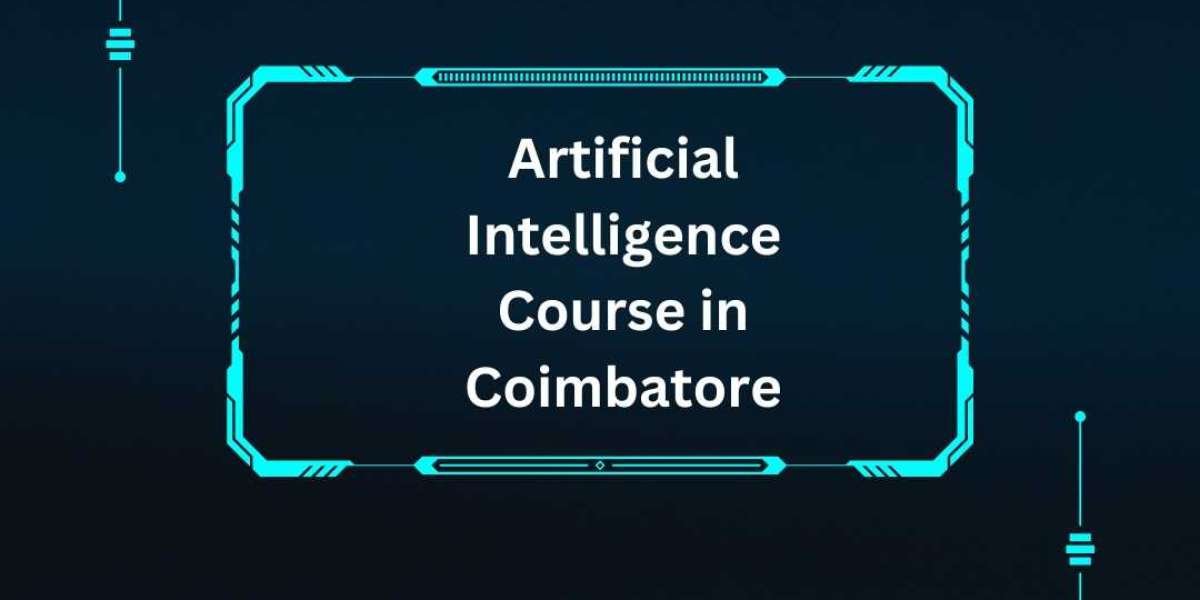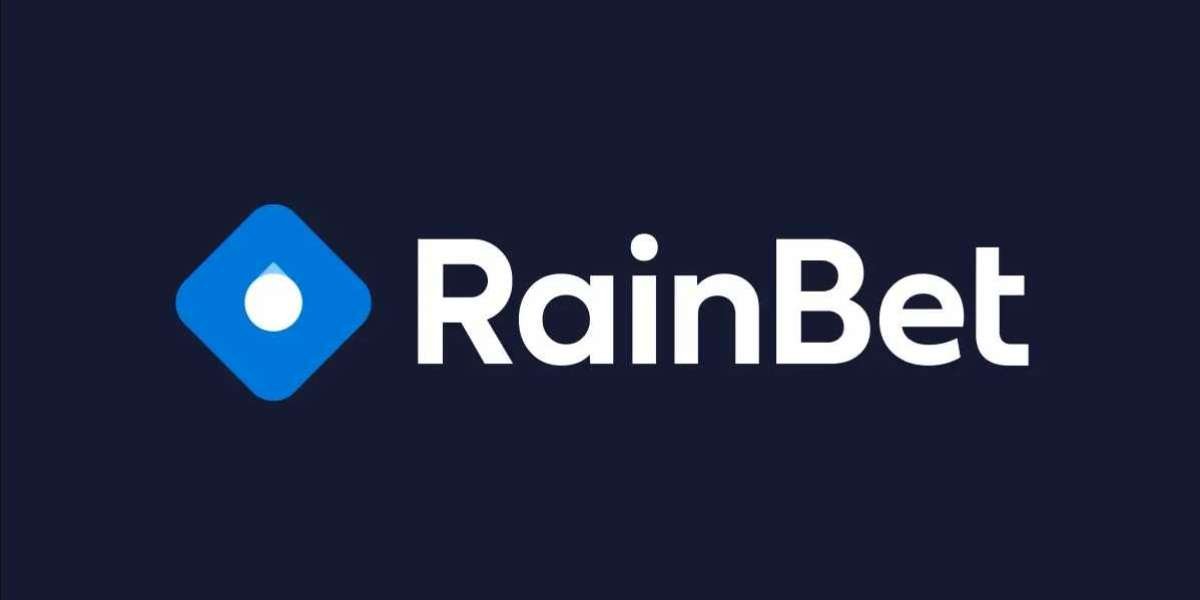How AI is Revolutionizing Healthcare: Applications and Impact
Artificial Intelligence, or AI, is no longer just a buzzword; it's a power tool changing the world's industries. One of the most impacted areas by AI is healthcare. In a sector that thrives on precision, efficiency, and rapid innovation, AI improves outcomes, streamlines processes, and changes how we approach medical care. If you’re interested in learning how AI is changing the healthcare landscape, taking an artificial intelligence course in Coimbatore is a great place to start. AI in healthcare is a fascinating topic, and the future possibilities are exciting.
AI in Healthcare: The Emerging Revolution
AI is revolutionizing healthcare in a number of critical ways and starts with data. Healthcare is a data-intensive business; there are millions of patient records, diagnostic images, research papers, and clinical trials being generated constantly. However, the problem remains with the effective management of all these data and making them useful in delivering better care to patients. This is where AI comes into play, using algorithms, machine learning, and deep learning techniques to analyze, interpret, and make sense of health data.
One way to achieve this is through enrolling in an artificial intelligence course with placement so that one can get experience and practical knowledge on how these technologies are applied in real-world healthcare scenarios. Potentially, AI will assist healthcare professionals to hasten the diagnosis of diseases and develop patient treatment plans and even predict their outcomes. Institutions like Xplore IT Corp offer specialized courses that can teach you these advanced skills, making you a valuable asset in the growing field of AI in healthcare.
1. AI in Diagnostics: Faster and More Accurate Results
Diagnostic diagnostics represent one of the major applications of AI in the healthcare industry. Technologies related to machine learning and image recognition help healthcare professionals diagnose patients more accurately through data analysis of medical images and medical data. For instance, AI-based systems are now analyzing the medical imaging data derived from MRI, CT scans, and X-rays. With an immense potential in diagnostics for conditions like cancer, heart conditions, and neurological disorders, the speed and precision have improved with AI in these diagnosis applications.
These AI-driven diagnostic systems help doctors find issues that would otherwise go unnoticed, especially when dealing with complex data sets. The speed and accuracy of AI diagnostics reduce the time to diagnosis, allowing for early intervention, which is crucial for improving patient outcomes.
2. AI in Personalized Medicine
Personalized medicine is the tailoring of medical treatments to individual patients based on their distinct genetic makeup, lifestyle, and other factors. Currently, AI is playing an important role in the production of personalized treatment plans by taking into account large amounts of patient data to predict the most beneficial treatment options.
It is possible to process data from sources such as genetic testing, electronic health records, and even wearable devices to help doctors create a comprehensive and personalized treatment plan. This would ensure that patients receive the right treatment at the right time and reduce the risk of side effects and improve overall outcomes.
3. AI in Drug Discovery and Development
The traditional drug discovery process is long, expensive, and often inefficient. However, AI is accelerating this process by predicting how new drugs will behave in the human body. It analyzes massive datasets of molecular structures and patient reactions to identify promising drug candidates, test their effectiveness, and predict potential side effects before clinical trials even begin.
This fast-tracked drug development process has been very crucial for responding to global health crises, such as the COVID-19 pandemic. AI came in handy in identifying the potential drug candidates and vaccines in a fraction of the time it would take using traditional methods.
4. AI in Predictive Analytics: Preventing Diseases Before They Strike
AI can also be applied in prediction of diseases before they start to affect the patient. Based on a patient's history of medical treatment, lifestyle patterns, and predisposition toward certain diseases, an AI model can predict possible health threats in the future and prescribe preventive medication. This predictive approach towards health care helps doctors focus on prevention rather than treatment, thereby reducing healthcare costs and improving long-term patient health.
For instance, in AI, predictions for chronic disease can be done, as is the case for diabetes and cardiovascular diseases and even some mental illnesses; this then helps the patients to actively work on themselves regarding their health conditions. Such instances not only save lives but also reduce strain on healthcare systems.
5. AI in Robot-Assisted Surgery
AI-powered robots are now a part of modern surgery. They help surgeons perform complex procedures with more precision and less invasiveness. AI-equipped robotic systems can analyze the anatomy of a patient, provide real-time data, and even assist in making decisions during surgery.
These robot surgeries benefit in terms of offering faster recovery times, lessened complications, and better dexterity in delicate operations. Also, AI robots assist medical professionals in their training to learn surgical techniques as well through real-time feedback and insights offered.
6. AI in Virtual Health Assistants
The second area that AI is increasingly applied to in the health sector is the design of virtual health assistants. Such AI tools, commonly driven by natural language processing and machine learning, aid patients in managing their health, scheduling appointments, and generally advising patients on medical matters.
Virtual health assistants can help bridge the gap between patients and healthcare providers, offering round-the-clock support and guidance. They can also help reduce the strain on healthcare professionals by handling routine inquiries and tasks, allowing them to focus on more critical aspects of patient care.
7. AI in Healthcare Administration
AI is also enhancing healthcare administration besides patient-facing applications. Automating billing and coding to making hospital operations more effective reduces the administrative burden on health organizations, allowing them to work more efficiently.
Insurance claims can be processed with real-time tracking of appointments and resources by AI, ensuring health professionals spend more time on matters of the patient and less on paper-pushing, resulting in operational efficiency that saves them costs and improves patient care experiences.
8. AI in Mental Health Care
AI is also making a significant impact in mental health care. AI-powered chatbots and virtual assistants are being used to provide immediate support to individuals suffering from mental health conditions, such as depression, anxiety, and PTSD.
These AI tools provide early intervention, coping strategies, and refer people to the correct mental health professionals. By offering 24/7 support and assistance, such services can help reduce stigma on mental health and make help more accessible when needed.
9. AI in Population Health Management
AI also plays a critical role in managing population health. Through the analysis of health data from the entire population, AI can determine trends and patterns, which help healthcare systems predict and manage public health crises. Such information can be used to allocate resources more effectively, implement public health policies, and provide preventive care to at-risk populations.
In addition, during the COVID-19 pandemic, AI helped keep track of the spread, predicting hotspots and then making recommendations on containment measures.
10. AI for Cybersecurity in Healthcare
With healthcare systems becoming increasingly digital, the need for more robust cybersecurity has never been stronger. AI is helping in protecting sensitive patient data against cyber threats by detecting and responding to potential breaches in real-time. AI-driven cybersecurity tools can identify unusual patterns in network traffic, flagging potential attacks before they cause harm.
These AI systems are crucial for protecting the privacy of patients and maintaining the integrity of healthcare data systems, ensuring that the information of patients is secure.
Conclusion
The applications of AI in healthcare are broad and range from improving patient care to increasing operational efficiency while lowering costs. Enroll yourself in an artificial intelligence course in Coimbatore and learn the skills required to become a part of this revolution. Be it enhancing diagnostic accuracy, tailoring treatment plans, or driving innovations in drug discovery, AI is helping healthcare providers stay up with the curve.
Institutions such as Xplore IT Corp offer all-round training in AI, equipping students with the knowledge and hands-on experience required to excel in this exciting field. The future of healthcare is at the intersection of technology and medicine, and AI is leading the change.
If you are passionate about making a difference in healthcare, learning AI through a professional artificial intelligence course with placement is your gateway to a rewarding and impactful career. Embrace the future of healthcare and be a part of the change.








